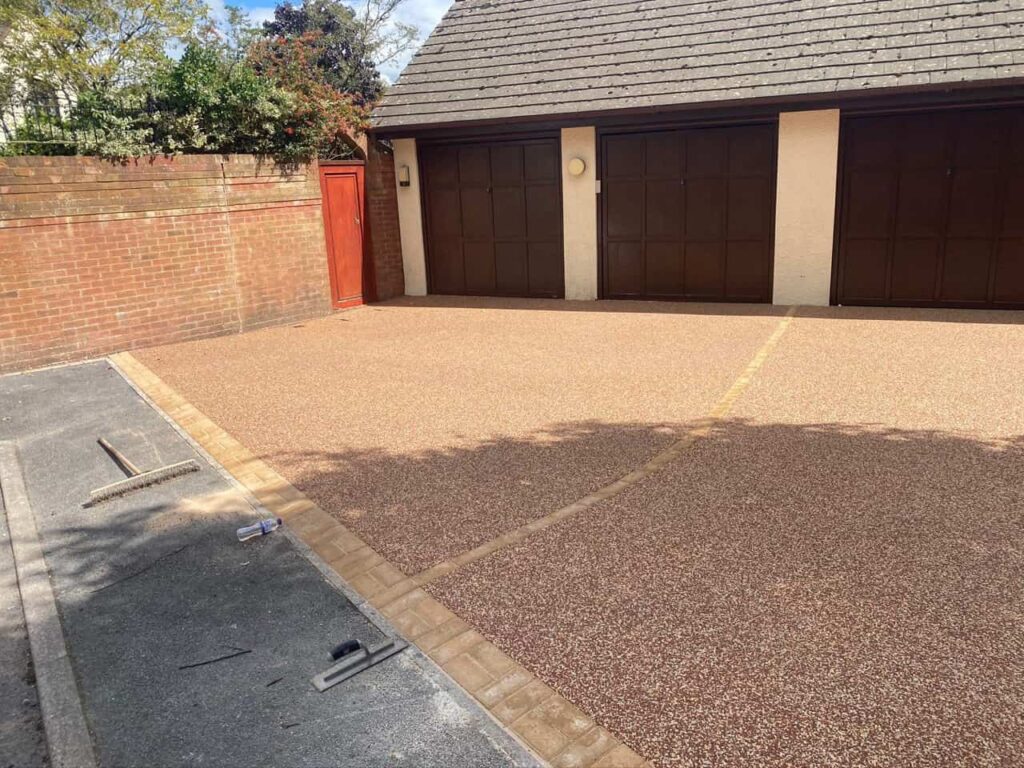The Science Behind Resin Driveways: Understanding the Materials and Their Properties
Introduction: Resin driveways have quickly gained popularity as a modern and durable choice for enhancing the aesthetics and functionality of driveways. Behind their sleek appearance lies a carefully engineered combination of materials that provide numerous benefits. At Folkestone Driveways & Surfacing, we believe in empowering our customers with knowledge. In this blog post, we’ll delve into the science behind resin driveways, exploring the materials and properties that make them a remarkable choice for homeowners.
Understanding the Materials:
**1. Resin Binder: The key component of resin driveways is the resin binder, a synthetic polymer that holds the aggregate particles together. The binder is often made from epoxy, polyurethane, or a hybrid blend. Resin binders are known for their exceptional adhesion properties, which contribute to the durability and longevity of the driveway surface.
**2. Aggregates: Aggregates are small stones or particles mixed with the resin binder to create the textured surface of the driveway. Aggregates come in various sizes and colours, allowing for customisation in aesthetics and texture. The combination of resin and aggregates forms a strong, solid surface that can withstand vehicular traffic and environmental factors.
Properties of Resin Driveways:
**1. Durability: Resin driveways are renowned for their durability and ability to withstand heavy loads and daily wear and tear. The resin binder forms a strong bond with the aggregates, creating a surface that resists cracking, chipping, and surface degradation.
**2. Permeability: One of the notable benefits of resin driveways is their porous nature. The surface is designed to allow water to pass through, preventing puddles and surface water runoff. This property contributes to effective drainage and reduces the risk of flooding.
**3. Flexibility: Resin driveways exhibit a certain degree of flexibility, allowing them to adapt to minor ground movements without cracking or breaking. This flexibility is particularly advantageous in regions prone to soil shifting and settling.
**4. UV Resistance: Quality resin binders used in driveways are often UV-resistant. This means the surface won’t fade, discolour, or degrade when exposed to prolonged sunlight, ensuring the driveway retains its vibrant appearance.
**5. Low Maintenance: Resin driveways are relatively low-maintenance surfaces. They are resistant to oil stains, moss, and weed growth, which minimises the need for frequent cleaning and upkeep. Occasional sweeping and washing are usually sufficient to keep the driveway looking pristine.
**6. Customisation and Aesthetics: Combining different aggregate sizes, colours, and patterns offers homeowners high customisation. Whether aiming for a contemporary look or a more natural appearance, resin driveways can be tailored to match your design preferences.
Conclusion: A Blend of Science and Aesthetics
Resin driveways are a perfect fusion of science and aesthetics, offering a durable and visually appealing solution for enhancing your property’s curb appeal. The careful combination of resin binders and aggregates produces a surface with durability, permeability, flexibility, and UV resistance. At Folkestone Driveways & Surfacing, we take pride in our expertise in resin driveway installations, ensuring that the science behind these surfaces is applied to create beautiful and long-lasting results. Contact us today to explore how a resin driveway can transform your property while delivering functionality and visual appeal.
Call us on: 01303 763 895
Click here to find out more about Folkestone Driveways & Surfacing
Click here to complete our contact form and see how we can help with your driveway needs.

